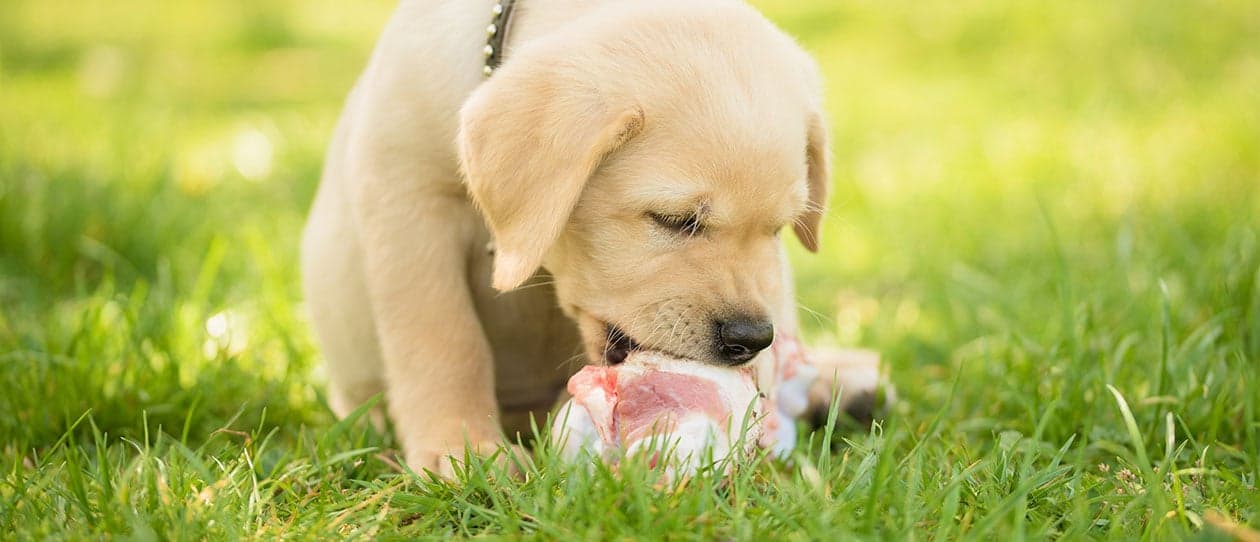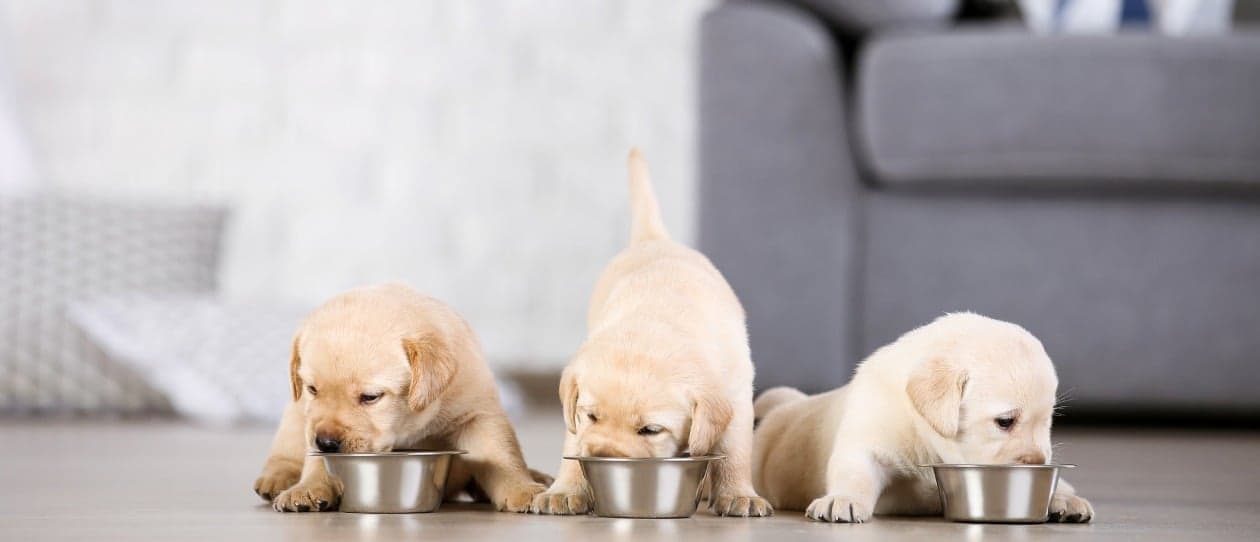
- A Guide To Perfect Your Pet's Health/
- Manage Your Dog's Digestive Health/
- What Can and Can't Dogs Eat?


It might surprise you to learn that dogs and people are quite alike when it comes to dietary requirements – we mammals both need a balanced diet that includes water, proteins, fats, carbohydrates, minerals and vitamins. These nutrients give us energy to get through the day, help repair body tissues, facilitate healthy metabolic and immune function, and maintain bone, teeth and hair development. But dogs have a very different metabolism from humans, which means they can’t get these nutrients from all the same foods.
Most ‘human’ foods are way too rich and fatty for your pooch, and many are too high in sodium. You might think you’re slipping your pooch a treat when you offer some fat from your steak, or a stray potato chip. But if your dog is unable to digest that ‘treat’, it could induce vomiting and diarrhea, or trigger other more serious conditions. The other issue with feeding your pet directly from your plate is that you lose track of how much they’re consuming, which could lead to obesity over time.
On top of all of this, many ‘human’ foods are actually toxic to dogs.
What can dogs NOT eat?
While most pet owners know not to give their dog chocolate, the list of foods you should avoid feeding your pet is much longer.
- Chocolate and coffee: Though delicious to humans, both contain a chemical called theobromine, which dogs cannot metabolise. The darker the chocolate or stronger the coffee, the worse for your pet, with vomiting and diarrhea, panting, hyperactivity and tremors all side effects of consumption.
- Alcohol: Alcohol has the same effect on your pooch as it has on you – except your pet is a lot smaller, and it only takes a tiny amount to impact their liver and brain. In addition to decreasing coordination, it can induce vomiting, diarrhea, breathing problems and coma.
- Xylitol: This artificial sweetener is found in more things than you imagine, from lollies and gum to toothpaste, baked goods and some diet foods. Consumption can cause your dog’s blood sugar to drop, and lead to vomiting, lethargy and reduced coordination.
- Avocado: While dogs can tolerate a small amount of avocado flesh, other parts of the plant – the leaves, skin – contain a toxin called persin, which can cause vomiting or diarrhea in dogs, and is extremely harmful to many other animals as well.
- Anything from the allium family: Like onions, garlic, chives and leeks, whether raw, cooked or powdered. These vegetables and herbs can cause gastrointestinal irritation and could lead to red blood cell damage.
- Grapes and raisins: The exact toxicity in these fruits is not known, but they can cause kidney failure in dogs.
- Macadamia nuts: Like grapes, the exact toxicity in macadamia nuts remains a mystery. What we do know is that when ingested, they can cause joint weakness, vomiting and tremors in dogs.
- Dairy products: Like some humans, adult dogs don’t possess significant amounts of lactase (the enzyme that breaks down lactose in dairy), and ingesting these products can lead to diarrhea and other digestive issues.
Food you can feed your dog - carefully
Chicken is one of the most common meats found in pet foods today, and most dogs can’t get enough. When cooked and off the bone, chicken can be calming for doggy digestive systems. Dogs have hardy stomachs and can also handle some raw chicken, but like other raw meats, it can accumulate bacteria and you need to be careful to ensure it’s fresh. Neither small bones nor cooked bones, which can splinter easily, should ever be given to your pet, as they can get stuck in places they shouldn’t.
Note that some dogs, however, are allergic to poultry. This allergy is most common in smaller dogs, and can lead to diarrhoea, excessive itching, scratching, and licking of the paws.
While you might consider olive oil too ‘human’ to feed your dog, it is not only safe to give them in small amounts, but also extremely healthy. It contains a whole lot of good vitamins and fatty acids that help keep your dog’s skin moisturised and coat shiny, while lowering cholesterol, aiding digestion and protecting cells from damage.
What is the best diet for your dog?
Dry food or wet? Expensive brands or from a supermarket? Commercial or homemade? The choices available for your pet’s diet can be overwhelming. There’s no simple answer, as dietary requirements depend on a lot of factors, including breed, activity level, size and stage of life. The good news is that apart from the ‘no gos’ above, dogs are fairly flexible eaters, and as long as their diet is balanced and proportional, they’ll thrive. Learn more about how to improve your dog’s digestion here.




